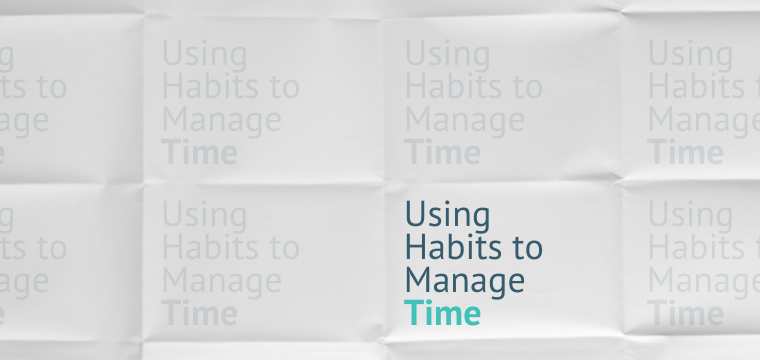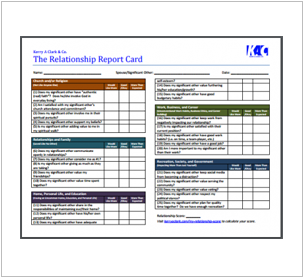Learn to Use Your Habits to Benefit You
A Different Time Management Philosophy – Part 8
As we were thinking about what pieces to include in “Next Level Planning: A Collection of Lessons of Task to Time Management,” I was reminded of a very important principle I learned from a guy named James Clear. James is the author of a popular book called, “Atomic Habits.” In order to be successful and take your planning and ability to better manage your time markers to the next level, one key principle is how we use our habits to get the results we desire. I recall the first time I ran across James Clear’s writing; it changed me immediately and I want to share with you a few of those takeaways in light of planning and time-management. Let’s do it.
 Takeaway 1 – Work hard on what comes natural.
Takeaway 1 – Work hard on what comes natural.
There’s another way to say this. Work hard on what comes easy. You have to learn how to give the hard stuff and the stuff you’re not good at to someone else. You see every time you do something you’re not good at or doesn’t come easy, you’re just slowing yourself down in the results you’re producing. Get the hard stuff out of the way, literally. In fact, you need to spend your life working on the things you’re gifted at doing so that you can maximize your success and that, my friend, will give you back control of your time.
Takeaway 2 – Earn a reward for your habit.
“What is immediately rewarded is repeated, what is punished is avoided.” – James Clear
I know you might be thinking what in the world does this have to do with planning and managing what we call our time. The truth is, it has everything to do with it. In fact, that statement has more to do with discipline, training oneself to do something in a controlled and habitual way. The best way to create discipline to produce a desired result is to implement a reward and punishment system. If there is an activity you like to do, set a rule for yourself that you won’t do that enjoyable activity until you complete some desired work. For example, I use television as a reward. There might be a show or a movie I’d like to watch, but before I can sit down and enjoy some leisure television, I have to complete a preset activity that’s needed. Television then becomes a reward for getting the action done or a penalty if I don’t do what needs to be done. For you it might be food or exercise. I could go to the extreme here and identify other activities that can be viewed as a reward and I’m certain you’d get the work done so that you can gain that reward. For some, you might need to seek help from a friend or a spouse to implement this reward system. Do what it takes to get the reward for doing what must be done anyway.
Takeaway 3 – Build specific habits.
“Success is the product of [your] daily habits.” – James Clear
I was actually shocked to hear this as I have never thought of it in this way before. Your habits are important. A habit is someone doing what’s become normal for you. In order to become more, you have to constantly have a habit of changing and updating your habits. In other words, become uncommon in your habits. Don’t allow your habits to remain the same and don’t take on a mindset that you can’t change your habits. If you desire a certain result, then make a habit that ensures that your desire is accomplished. For example, I’ve made it a habit to draft a thousand words each weekday during my lunch-break. I’ve done it for so long, I can’t think of any other way to spend that time. It’s a habit that I intentionally set so that I could become a writer. What habit can you set so that you can become who you wish to become?
Takeaway 4 – Set a schedule, not a deadline.
“If you want to be the type of person who accomplishes things on a consistent basis, then give yourself a schedule to follow, not a deadline to race toward.” – James Clear
In takeaway 3, we discussed creating a habit to get things done. This next takeaway is close to that, but instead of relying on your habits, rely on your schedule. Michael Hyatt once said these words, “what gets scheduled gets done.” So many of us fail to reach our goals because we’re good at setting deadlines, but are terrible at setting a schedule. If you’re like me, you want to publish a book or have some big project to complete by a certain date, but without the time slots on our calendar to work towards it weekly, it won’t get done. We have good intentions for long term goals, but poor planning for the daily and weekly work that’s needed to get there. Using your schedule, map out what it would take to reach your goal. Remember to also build in the margin needed for when the unexpected occurs. Each time you think of setting a deadline also think of the recurring time slots that will be needed to put in the work. This is how we take planning to the next level.
If there is one practice or principle that you should take with you from this lesson, it should be this. Learn to use your habits to benefit you. Most habits are detrimental or destructive in nature, but habits can be used to produce desired outcomes. This is what it means to exchange normal habits for extraordinary ones. I feel like we need at least one scripture on this lesson to seal this thought. The Bible says that if anyone is in Christ (He who masters in extraordinary), this person becomes a new creation. This is done by putting away the old [habits] and taking on new [habits] which produces a new creation.[1] In other words, your life goes to the next level.
Question: what habit could you begin today that has the potential of transforming your life? is available now!
Our team has worked very hard putting it together. We designed it to help you and your family move the needle forward in making your life your business.
Find out more about the Family plan here.
is available now!
Our team has worked very hard putting it together. We designed it to help you and your family move the needle forward in making your life your business.
Find out more about the Family plan here.
[1] II Corinthians 5:17 NKJV, Bible.com, accessed July 25, 2022, https://www.bible.com/bible/114/2CO.5.17.NKJV
All Scripture references used by permission, see our Scripture copyrights.


